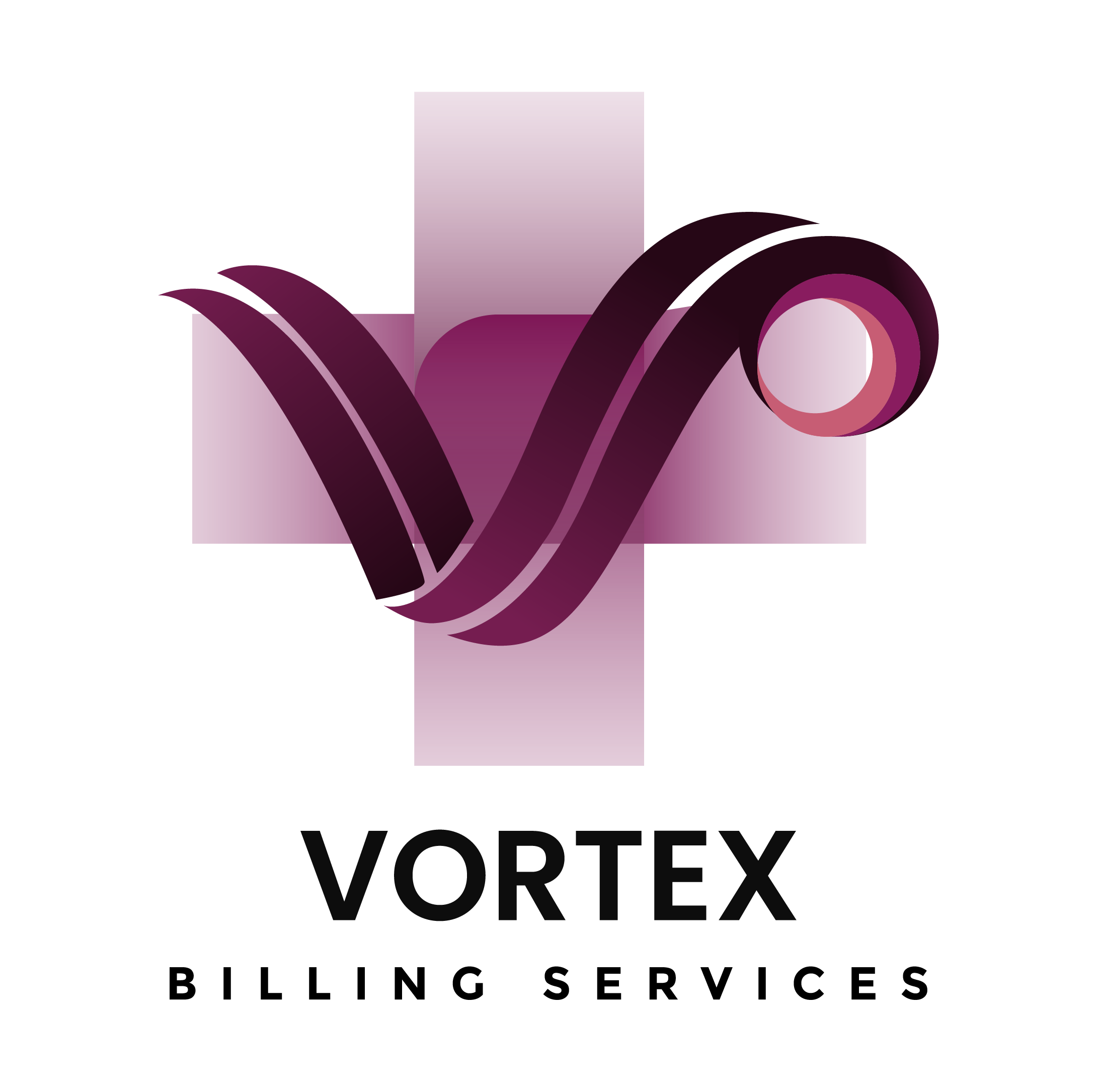Maximizing Revenue: The Power of Professional RCM Services
In the evolving U.S. healthcare landscape, medical practices are increasingly comparing the hidden financial burdens of in house billing to the efficiency of outsourced RCM services. If you’ve ever questioned whether your practice is truly maximizing its revenue, this article is for you. Spoiler alert: the hidden costs of managing billing internally often outweigh the price tag of outsourcing—especially when compliance, tech integration, and administrative overhead are factored in. RCM services not only handle claims and collections, but also optimize your entire revenue cycle with a cost-effective, compliant, and technology-driven approach.
Introduction to RCM Services
What Are RCM Services?
Revenue Cycle Management, or RCM services, refer to the end-to-end process that healthcare providers use to manage the financial aspects of patient care. This includes verifying insurance eligibility, charge capture, coding, claim submission, denial management, payment posting, and patient billing. In short, RCM bridges the clinical and administrative functions of a healthcare facility.
In the U.S. medical billing marketplace, RCM services are now a cornerstone for clinics aiming to reduce errors and maximize returns. What makes them crucial is their ability to integrate with EHRs (Electronic Health Records) and deliver real-time analytics that empower healthcare practices to make data-driven decisions. And let’s be honest—handling all this manually in-house often leads to bottlenecks.
Additionally, high-performing RCM providers bring specialized knowledge of CPT codes, payer regulations, and HIPAA compliance. Their precision ensures fewer denials, faster reimbursements, and minimal rework, ultimately saving practices thousands of dollars every year.
Why RCM Is Essential for Healthcare Practices
Today’s medical practices face more than just patient care. They’re battling underpayment, increasing claim denials, and time-consuming administrative tasks. Without a streamlined system, these challenges can bleed your revenue dry. This is where RCM services step in to rescue.
RCM systems automate repetitive tasks, flag coding errors before submission, and maintain compliance with shifting regulatory standards like CMS and HIPAA. Outsourcing these tasks allows your in-house staff to focus on patients rather than paperwork. Plus, these services often come with dedicated account managers who keep your revenue cycle humming like a well-oiled machine.
The rise of telehealth, value-based care models, and MACRA policies further stress the importance of having a solid RCM framework in place. Providers who leverage these services are seeing improvements in revenue retention, cash flow consistency, and overall patient satisfaction.
Understanding In-House Medical Billing
Structure and Workflow of In-House Billing Teams
When you handle billing internally, you’re not just processing claims—you’re managing an entire department. This involves hiring and training staff, investing in software, ensuring constant regulatory updates, and implementing manual quality checks. For small to mid-sized practices, this workload can be overwhelming.
A typical in-house billing setup includes billers, coders, AR specialists, and compliance officers. These individuals must work in sync to capture charges, verify insurance, submit claims, follow up on denials, and manage patient statements. Sounds simple? It’s anything but.
More often than not, in-house teams are juggling multiple responsibilities without proper tools or updated knowledge. Mistakes happen. Claims get denied. And then begins the painful process of resubmission, phone calls with insurance providers, and revenue leakage—all of which could have been avoided with professional RCM services.
Moreover, in-house staff need ongoing education to stay ahead of billing trends and compliance laws. That comes at a cost—not just monetary, but also in time and productivity. And let’s not forget vacation coverage, employee turnover, and burnout, which can completely derail your billing operations.
Common Challenges Faced with Internal Billing
Here’s a reality check: even the most experienced in-house billing teams struggle with growing administrative demands. Whether it’s learning new CMS rules, adjusting to payer-specific documentation requirements, or managing audits, the in-house model can feel like a ticking time bomb.
Here are some of the most common pain points:
- Coding errors: A small oversight in medical coding can lead to claim denials, lost revenue, or compliance issues.
- Delayed reimbursements: Without aggressive follow-up, aging AR balances can pile up fast.
- Limited scalability: As your practice grows, your internal billing may not keep up with the volume.
- Lack of performance visibility: Internal systems often lack the advanced analytics that outsourced RCM services provide.
Ultimately, these challenges impact not just your bottom line, but also the patient experience. After all, delayed or confusing bills can frustrate patients and erode trust in your practice.
What Does Outsourcing RCM Services Involve?
Key Functions Handled by RCM Service Providers
Outsourcing RCM services means handing off your entire revenue cycle—or parts of it—to a third-party expert. These companies specialize in the lifecycle of claims and are powered by experienced professionals and state-of-the-art technology. The key advantage? You focus on healthcare; they focus on payment.
Here’s what a typical outsourced RCM provider handles:
- Insurance verification and eligibility checks
- Accurate coding and charge entry
- Claim submission and tracking
- Denial management and appeals
- Payment posting and reconciliation
- Patient billing and support
Outsourced providers also bring advanced AI tools, predictive analytics, and compliance auditing that most in-house teams can’t afford or operate. This results in fewer denials, quicker turnarounds, and more reliable cash flow.
Additionally, many U.S.-based RCM companies offer scalable services, meaning you only pay for what you use. Whether you’re a solo practice or a multi-site clinic, there’s a tailored solution that meets your operational and financial needs.
Types of Providers in the USA’s RCM Marketplace
The American RCM industry is vast and diverse. From boutique firms specializing in dermatology or orthopedics to full-suite enterprise providers serving large hospital networks, there’s something for everyone.
Generally, RCM providers fall into these categories:
- Small-Scale, Niche Providers – These specialize in specific specialties like cardiology or mental health.
- Mid-Sized Tech-Enabled Companies – Offering cloud-based platforms, these are perfect for growing practices.
- Enterprise-Level Outsourcing Firms – Used by hospitals and multi-specialty groups requiring large-scale automation and regulatory oversight.
The U.S. market also favors RCM services that are fully transparent in their pricing and results, allowing providers to monitor performance via dashboards and reports. With HIPAA and other compliance regulations at the forefront, top-tier companies also ensure bulletproof data protection protocols.
Cost Analysis: In-House Billing vs. Outsourced RCM
Direct and Indirect Costs of In-House Billing
At first glance, managing billing internally might seem like the cheaper option. But once you factor in salaries, software licenses, hardware upgrades, compliance training, and HR overhead, the numbers tell a different story.
Let’s break it down:
- Staff salaries: Medical billers and coders earn an average of $45K–$65K per year in the U.S.
- Training and certifications: Ongoing CEUs and HIPAA compliance training come at a recurring cost.
- Software costs: Practice management systems can cost thousands annually in subscriptions and upgrades.
- Error costs: Coding or claim submission errors can lead to denied claims, revenue delays, or audits.
And then there are indirect costs—time spent managing staff, handling disputes, dealing with insurance calls, and troubleshooting software glitches. These hidden expenses drain both productivity and morale.
Meanwhile, outsourced RCM services bundle all these elements—expert staff, tech, compliance, and reporting—into one predictable monthly fee. That’s the definition of cost-efficiency.
Cost Analysis: In-House Billing vs. Outsourced RCM (Continued)
Cost Benefits of Outsourcing RCM Services
Outsourcing RCM services doesn’t just reduce costs—it transforms your entire financial workflow. When practices in the U.S. opt for a reliable RCM provider, they eliminate the need for full-time billing staff, expensive software licenses, and costly infrastructure. Instead, they benefit from a flexible pricing model, usually based on a percentage of collections—meaning the provider only gets paid when you do.
Let’s highlight some financial advantages of outsourcing:
- No overhead costs for staff salaries, benefits, or training.
- Scalable pricing models that adjust with your practice volume.
- Faster claim processing, which shortens the revenue cycle.
- Higher claim acceptance rates, thanks to experienced coders and pre-submission audits.
- Better AR management, reducing outstanding receivables and minimizing bad debt.
Another massive advantage is cost predictability. You’ll always know what you’re paying, and your billing expenses grow (or shrink) with your practice’s revenue. That’s a major win for budget forecasting and financial planning.
Many RCM services in the USA also provide KPI dashboards, allowing real-time visibility into collections, denials, and other key metrics. These insights are crucial for data-driven decision-making, helping providers adapt faster to payer changes or seasonal billing trends.
Hidden Costs You’re Likely Overlooking
Compliance Risks and Penalties
Here’s the scary part: one misstep in compliance can lead to massive financial penalties. From HIPAA violations to incorrect Medicare coding, the consequences are steep. Practices that manage billing internally often struggle to stay on top of regulatory updates—especially when CMS rules are evolving every year.
Outsourced RCM services invest heavily in compliance teams and legal advisors who ensure every claim meets federal, state, and payer-specific guidelines. They perform internal audits, identify risky patterns, and implement proactive measures to protect your practice.
Ignoring compliance comes with a price:
- HIPAA violations can cost between $100 and $50,000 per incident.
- False Claims Act penalties can exceed $11,000 per claim.
- Audits can freeze reimbursements and cause reputational damage.
In short, outsourcing isn’t just about billing—it’s about risk mitigation. You gain peace of mind knowing that your revenue cycle operates within legal parameters, minimizing exposure to penalties and investigations.
Technology and Software Maintenance
One often-overlooked cost of in-house billing is the tech stack needed to support it. Practice management software, electronic health records (EHR), coding tools, claim scrubbing software, and secure data storage—each of these adds to your operational expenses.
Most RCM services include all necessary technology in their pricing. They offer access to cloud-based platforms that integrate seamlessly with your existing EHR, along with automation tools that reduce manual errors and speed up the billing cycle.
Benefits of outsourced RCM tech infrastructure:
- No upfront capital investment in hardware or software.
- Automatic upgrades to meet evolving payer or compliance requirements.
- Real-time reporting and dashboards to monitor collections and denials.
- Cybersecurity protocols to protect sensitive patient data.
When you outsource, you’re essentially getting enterprise-grade technology without paying enterprise-level prices. That’s a smart move for practices wanting to stay competitive without going broke on IT.
Training, Hiring, and Staff Turnover
Let’s be honest—hiring and retaining billing staff is a full-time job. From writing job descriptions and interviewing candidates to providing HIPAA and CPT training, the costs stack up quickly. And when someone leaves, your entire billing operation slows down or stalls.
Turnover in medical billing roles is alarmingly high, largely due to stress, repetitive tasks, and lack of growth. Every time you lose a biller, you lose institutional knowledge—and money. Even during stable periods, you must invest in continuous education to keep your team updated on payer rule changes, coding updates, and compliance regulations.
By switching to RCM services, you offload these HR headaches. Providers have access to:
- Certified coding and billing experts with ongoing training.
- Staff redundancy that ensures operations don’t stop during absences.
- Specialized teams for different functions: coding, collections, appeals, etc.
Ultimately, outsourcing allows you to focus on growing your practice, not managing a billing department.
Scalability and Flexibility of RCM Services
Adapting to Growth and Seasonality
One of the major advantages of outsourcing RCM services is scalability. Whether you’re adding new providers, expanding locations, or shifting toward telemedicine, outsourced billing adjusts to fit your growth—without disrupting operations or increasing overhead.
In-house teams, on the other hand, struggle to handle fluctuating claim volumes. If your patient load spikes seasonally or you roll out new services, your internal staff may quickly become overwhelmed. Hiring more billers takes time and money, and temporary coverage is often insufficient.
Outsourced RCM providers scale dynamically. They have the manpower and resources to handle:
- High patient volume surges
- New specialty service lines
- Multi-location billing needs
- Different payer rules across states
This agility ensures uninterrupted revenue flow even as your business evolves. Plus, many RCM firms in the U.S. offer service-level agreements (SLAs) that guarantee performance benchmarks—like claim turnaround time and denial rates—so you can grow with confidence.
Custom Solutions for Specialized Practices
Every medical practice is unique. Pediatricians have different billing codes and needs than oncologists. Orthopedic surgeons require different RCM workflows than primary care clinics. That’s why tailored solutions matter—and it’s another area where outsourced RCM services shine.
RCM providers often specialize in specific verticals, offering customized services such as:
- Specialty-specific coding expertise
- Dedicated account managers who know your niche
- Custom reports based on your operational KPIs
- Integration with specialty EHRs and diagnostic systems
If your practice deals with complex cases or multi-modality treatment plans, working with a provider who understands your specialty can drastically improve claim accuracy and revenue outcomes.
Transparency and Reporting Advantages
Real-Time Data and Analytics
Modern RCM services aren’t just about claim processing—they’re about insights. Top-tier providers offer real-time dashboards that provide visibility into every aspect of your revenue cycle. From claim status and AR aging to denial trends and cash flow forecasts, you’re always in the loop.
Unlike in-house systems, which may rely on outdated spreadsheets or manually pulled reports, outsourced RCM platforms deliver instant access to:
- Daily, weekly, and monthly revenue reports
- Payer performance metrics
- Benchmarking against national data
- Denial root-cause analysis
These insights help you identify inefficiencies, adjust workflows, and make smarter decisions. Transparency breeds accountability—and when your billing partner’s performance is measurable, your practice thrives.
Custom Dashboards and KPIs
No two practices need the same metrics. Whether you want to track clean claim rates, days in AR, or collections by provider, outsourced firms can create custom dashboards tailored to your needs.
RCM services also offer automated alerts and performance summaries sent to your inbox—perfect for busy physicians and managers. With data-driven transparency, you gain full control over financial health without micromanaging billing tasks.
This is a game-changer for compliance-driven and technology-oriented practices in the U.S., who need both oversight and agility to stay ahead.
Impact on Patient Experience
Faster Billing, Clearer Communication
While most discussions about RCM services focus on finances, patient experience is a huge—often overlooked—benefit. Efficient billing leads to fewer errors, less confusion, and faster statement delivery, which patients deeply appreciate.
Here’s how outsourced RCM improves the patient journey:
- Accurate upfront cost estimates
- Fewer billing errors and overcharges
- Online portals for easy payments
- Prompt answers to billing questions via call centers
All of this reduces frustration, improves trust, and boosts patient retention—especially important in competitive healthcare markets.
Less Time Spent on Financial Conversations
Nobody enjoys discussing money during a medical visit. When billing issues dominate front-desk conversations, it takes away from clinical care. With professional RCM services, your staff spends less time explaining EOBs and more time supporting health outcomes.
Practices that invest in high-quality billing solutions report:
- Better online reviews
- Fewer billing complaints
- Increased patient referrals
In today’s healthcare environment, revenue cycle success and patient satisfaction go hand in hand.
Making the Transition to Outsourced RCM
What to Look for in a Provider
If you’re considering outsourcing, the next step is choosing the right partner. Look for a provider that understands the U.S. healthcare system inside and out and offers:
- Transparent pricing (no hidden fees)
- Scalable and customizable services
- Certified and experienced billing staff
- Compliance and HIPAA guarantees
- Robust analytics and reporting tools
Ask for references, request a demo, and review case studies of similar practices.
Transition Best Practices
Transitioning from in-house to outsourced RCM services doesn’t have to be disruptive. Many providers offer onboarding plans that include data migration, staff training, EHR integration, and post-launch support.
Here’s how to make the switch smoothly:
- Conduct a billing audit to identify current inefficiencies.
- Clarify goals with your new RCM partner.
- Set timelines for go-live, testing, and training.
- Communicate with patients about new billing processes if necessary.
- Monitor performance in the first 90 days and adjust as needed.
With the right partner and process, your practice can shift to outsourced billing without missing a beat—and start reaping the financial and operational rewards right away.
Conclusion
The hidden costs of in-house billing—staffing, compliance risks, technology upkeep, training, and inconsistent workflows—are draining more than just money from medical practices across the U.S. They’re draining time, energy, and peace of mind. On the flip side, outsourcing RCM services gives you access to a team of experts, advanced technology, and robust analytics, all tailored to drive your revenue up and your stress down.
In a healthcare world where every dollar and minute counts, the choice is clear. If your practice is still handling billing the old-fashioned way, it’s time to evolve. With the right RCM services, you’ll streamline operations, ensure compliance, enhance patient satisfaction, and—most importantly—keep your financial health in check.
FAQs
- What are RCM services in medical billing?
RCM services manage the entire billing cycle from appointment scheduling to final payment collection, ensuring claims are processed accurately and efficiently. - Are outsourced RCM services compliant with U.S. healthcare laws?
Yes. Reputable RCM providers in the U.S. follow HIPAA, CMS guidelines, and state-specific regulations to ensure legal compliance. - Is it expensive to switch from in-house billing to outsourced RCM?
While there may be an initial setup fee, most practices save significantly in the long term by reducing overhead, errors, and delays. - Can small practices benefit from outsourcing RCM?
Absolutely. Many RCM companies offer tailored packages for solo providers and small clinics, making it affordable and scalable.



